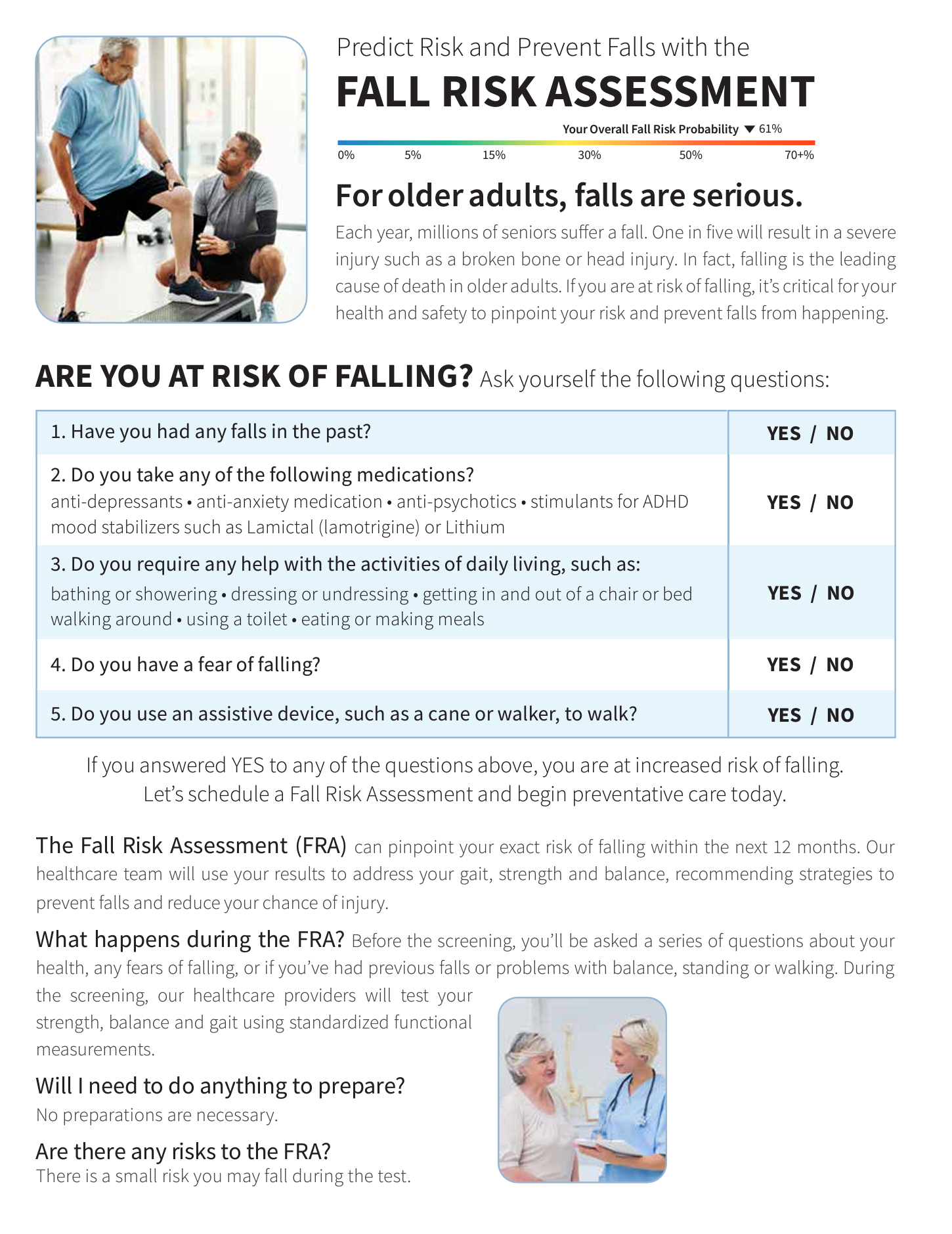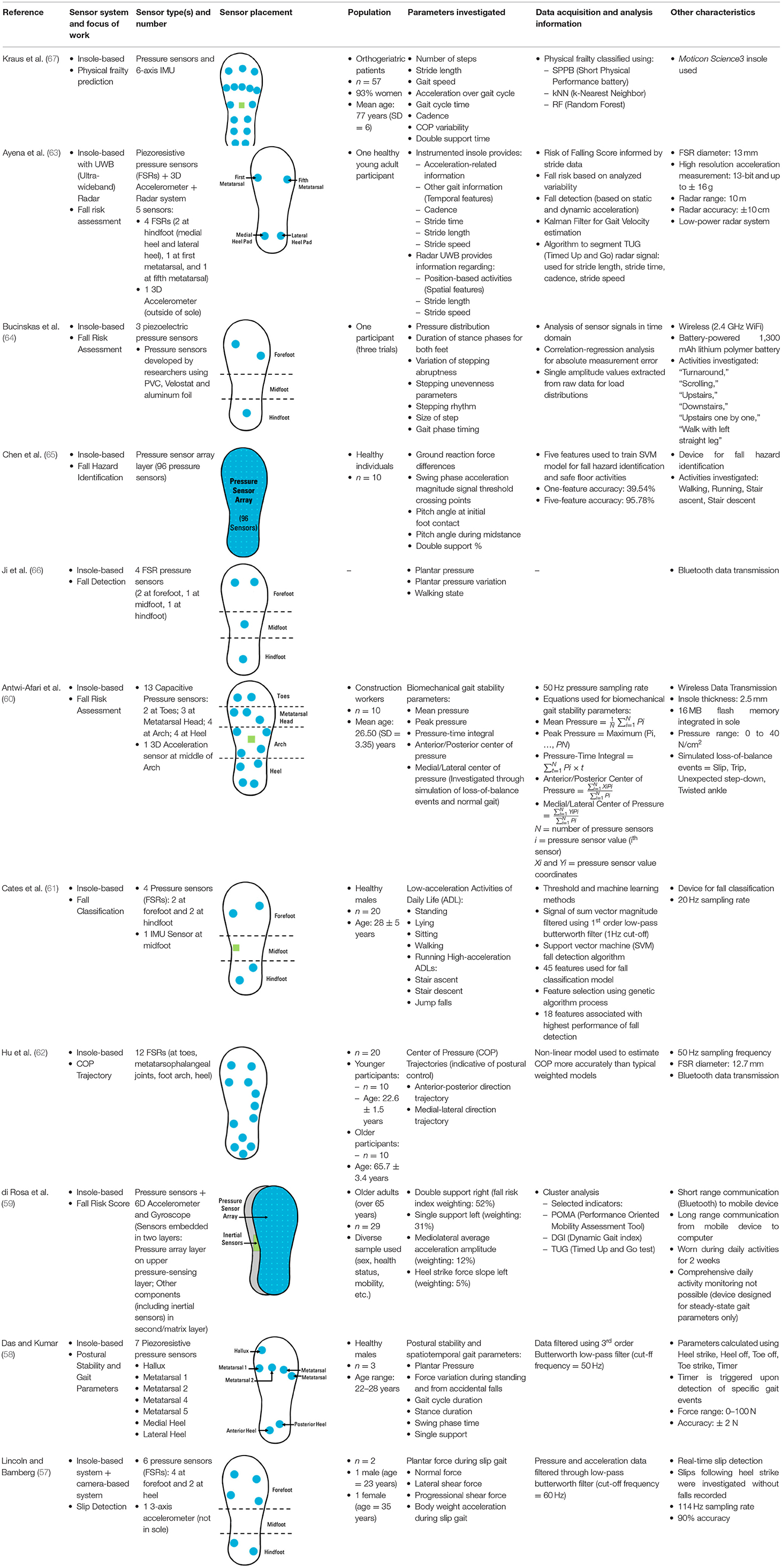The 9-Second Trick For Dementia Fall Risk
What Does Dementia Fall Risk Do?
Table of ContentsThe Only Guide for Dementia Fall RiskGetting The Dementia Fall Risk To WorkThe Definitive Guide for Dementia Fall RiskWhat Does Dementia Fall Risk Do?The Basic Principles Of Dementia Fall Risk
Assessing loss threat helps the whole health care group develop a much safer setting for each individual. Ensure that there is an assigned area in your clinical charting system where personnel can document/reference scores and record pertinent notes related to drop prevention. The Johns Hopkins Autumn Threat Evaluation Tool is just one of numerous devices your staff can make use of to help prevent unfavorable clinical occasions.Person drops in health centers prevail and incapacitating negative events that continue in spite of decades of initiative to minimize them. Improving interaction across the assessing registered nurse, care group, individual, and person's most included family and friends might strengthen loss prevention initiatives. A group at Brigham and Women's Healthcare facility in Boston, Massachusetts, looked for to develop a standard fall prevention program that centered around improved interaction and client and family members engagement.

The technology team highlighted that effective application depends upon individual and personnel buy-in, assimilation of the program into existing operations, and integrity to program processes. The team kept in mind that they are coming to grips with how to make sure continuity in program application during periods of dilemma. During the COVID-19 pandemic, for instance, a rise in inpatient drops was related to constraints in individual interaction along with constraints on visitation.
Dementia Fall Risk - An Overview
These cases are generally taken into consideration avoidable. To implement the intervention, organizations need the following: Access to Autumn suggestions sources Fall pointers training and retraining for nursing and non-nursing team, including brand-new registered nurses Nursing process that permit individual and family involvement to carry out the falls assessment, guarantee use the avoidance plan, and conduct patient-level audits.
The results can be very detrimental, frequently speeding up individual decrease and triggering longer health center stays. One study estimated stays boosted an additional 12 in-patient days after a client autumn. The Loss TIPS Program is based upon interesting patients and their family/loved ones throughout 3 main processes: evaluation, individualized preventative treatments, and auditing to make certain that individuals are taken part in the three-step fall avoidance procedure.
The patient analysis is based on the Morse Autumn Scale, which is a validated fall threat analysis tool for in-patient health center settings. The scale consists of the six most usual factors patients in hospitals drop: the individual autumn background, high-risk problems (including polypharmacy), use IVs and other exterior devices, mental standing, stride, and wheelchair.
Each threat variable relate to several workable evidence-based treatments. The nurse produces a plan that integrates the interventions and is visible to the treatment group, person, and household on a laminated poster or printed aesthetic help. Registered nurses create the strategy while satisfying with the patient and the patient's family.
The Greatest Guide To Dementia Fall Risk
The poster functions as a communication tool with other participants of the patient's care team. Dementia Fall Risk. The audit component of the program consists of analyzing the patient's expertise of their threat elements and prevention strategy at the system and healthcare facility levels. Nurse champions carry out at the very least five individual meetings a month with clients and their households to inspect for understanding of the loss avoidance strategy

A projected 30% of these drops result in injuries, which can vary in severity. Unlike various other negative occasions that need a standardized scientific feedback, loss prevention depends extremely on the demands of the person.
The Main Principles Of Dementia Fall Risk

Based upon bookkeeping outcomes, one website had 86% conformity and 2 sites had over check over here 95% conformity. A cost-benefit evaluation of the Fall pointers program in 8 healthcare facilities approximated that the program price $0.88 per Related Site client to execute and led to savings of $8,500 per 1000 patient-days in straight costs associated with the prevention of 567 falls over 3 years and 8 months.
According to the advancement team, organizations curious about implementing the program ought to carry out a readiness analysis and falls prevention voids analysis. 8 Additionally, organizations ought to make sure the essential facilities and process for execution and develop an application plan. If one exists, the company's Fall Avoidance Task Force should be entailed in preparation.
Getting The Dementia Fall Risk To Work
To start, companies should make certain completion of training components by nurses and nursing aides - Dementia Fall Risk. Hospital staff ought to analyze, based upon the needs of a health center, whether to make use of a digital wellness record printout or paper version of the loss avoidance strategy. Applying groups need to recruit and train registered nurse champs and develop procedures for bookkeeping and reporting on autumn data
Personnel need to be involved in the procedure of revamping the process to engage people and family members in the assessment and prevention plan procedure. Systems needs to remain in location to make sure that devices can recognize why a loss took place and remediate the reason. A lot more particularly, registered nurses need to have networks to offer ongoing comments to both team and unit leadership so they can readjust Read Full Article and enhance fall prevention operations and interact systemic problems.